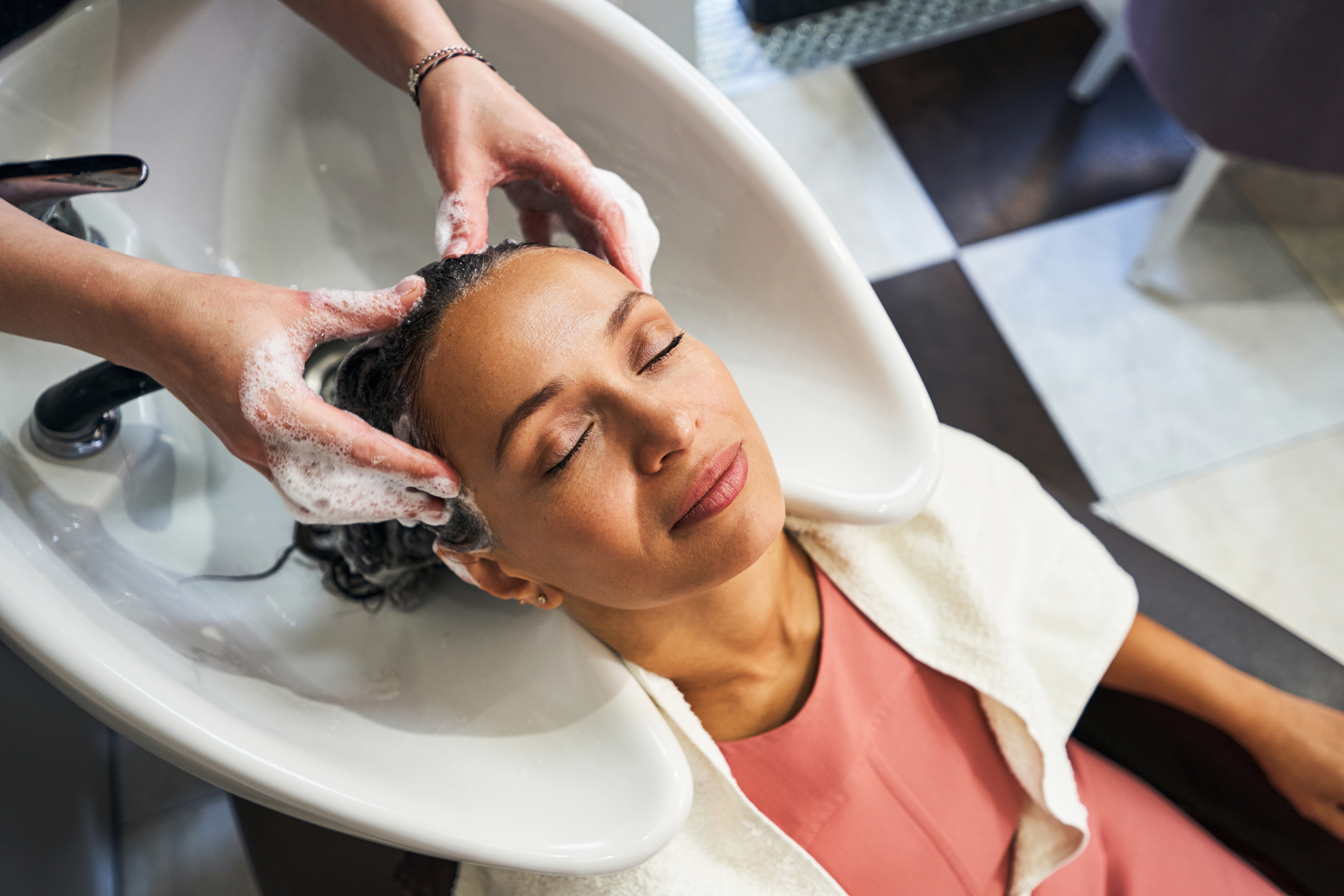

Over the past few years, several studies uncovering the presence of hormone-disrupting and carcinogenic chemicals in a broad range of personal care and hygiene products have increased consumers’ concerns regarding the potential health hazards they may be unsuspectingly exposed to on a regular basis.
Recently, new research has uncovered that the frequent use of hair straighteners or relaxers is associated with a higher incidence of uterine cancer (UC), with Black women facing more pronounced risks.
Recent study linking UC to hair straightening chemicals
Black women face distinct societal pressures that encourage the use of such hair straighteners or relaxers at earlier ages, incurring more prolonged exposure to potentially harmful chemicals.
The study conducted by the NIH tracked close to 34,000 US women (ages 35-74) taking part in the related Sister Study for almost 11 years, aiming to identify risk factors for cancers and other conditions. 378 uterine cancer diagnoses were confirmed throughout the study’s duration, with risks increasing to 4.05% for women who frequently used hair straighteners (over 4 times in the past year) than women who never used them (1.64%). Notably, other types of products analyzed in the study registered no such association.
Despite being relatively rare, the doubling risk rate is concerning since UC represents the most common gynecologic cancer, with nearly 66,000 diagnoses estimated in 2022. Previous research notes that UC has been steadily increasing in the US, primarily among the Black female demographic, representing about 60% of the participants who reported using hair straighteners in the past year.
While the NIH study may be the first of its kind, research from 2017 and 2019 also indicates that hair straightening products are correlated with other female cancers (breast, ovarian), likely due to the presence of hormone-disrupting chemicals like parabens, formaldehyde, metals, and bisphenol A. The longer application time leads to higher scalp absorption, which lesions and burns caused by straighteners can exacerbate.
A market for unsafe personal care products
As noted by the authors, the study’s implications are even more relevant for Black women due to their extensive use of hair straighteners compared to other ethnic groups, often beginning at younger ages. Several factors have been suggested to explain the more prevalent use of hair relaxers among Black women.
Societal pressures and expectations push Black and minority women to conform to outdated beauty standards that are still considered the preferred aesthetic norm. In the US, Black individuals have been routinely discriminated against in educational and professional settings for their natural hairstyle, with some reporting that they were treated better after straightening it. Earlier this year, Congress passed the Creating a Respectful and Open World for Natural Hair (Crown) Act with the express goal of banning this specific type of discrimination that overwhelmingly affects Black individuals.
At the same time, less insidious motivations, such as the desire for greater versatility in hairstyles or creative self-expression, could also contribute to Black women’s more frequent use of chemical straighteners. However, this same motivation has been disingenuously coopted by manufacturers who aim to capitalize on the opportunity by marketing their products specifically to the Black demographic.
Extensive toxic contamination garners strong consumer reaction
In recent years, independent research has increasingly brought forth evidence of harmful substances contaminating a broad range of self-care products, with carcinogens like asbestos in talcum-based products, or benzene identified in several brands of antiperspirants, deodorants, sunscreens, and, most recently, in dry spray shampoos. Unsurprisingly, outraged consumers started filing class action complaints against the liable companies, including industry giants like P&G and Unilever.
Following the release of the NIH’s study, a lawsuit was filed in Illinois against L’Oreal and four other hair straightener manufacturers, claiming that their products led to the plaintiff’s UC diagnosis and subsequent hysterectomy at the age of 28. Additionally, two more individual lawsuits were filed against L’Oreal and other manufacturers in New York and California, citing a connection between their cancer diagnoses and the defendants’ hair straightening products.
Notably, UC is far more common in women over 50. Whether intentional or not, the presence of toxic contaminants represents a severe health hazard for unsuspecting consumers, and manufacturers are ultimately responsible for their products’ safety.
While the recent surge of contamination reports illustrates the worrying extent to which vulnerable consumers may be exposed to commercial toxins, specialists advise exercising caution when discerning results. Although the NIH’s study was well conducted, it included respondents’ personal accounts of hair straightener use and did not collect precise information on brands and ingredients. Due to these acknowledged limitations, while an association with UC can be made, it isn’t sufficient to demonstrate causation.
The authors note that further research is required to confirm if and to what extent hair straighteners affect different populations causing ethnic disparities in UC incidence and to identify the specific substances that increase cancer risks in women.
A ‘difficult to diagnose’ cancer
Regular visits to a gynecologist are important for women to get ahead of potential health threats that target their sexual organs. But ovarian cancer is quite insidious, offering no symptoms in early stages and is not detectable from a Pap test.
According to the Mayo Clinic, when symptoms do develop, these are typical:
- Abdominal bloating or swelling
- Quickly feeling full when eating
- Weight loss
- Discomfort in the pelvic area
- Fatigue
- Back pain
- Changes in bowel patterns, like constipation
- A frequent need to urinate
Because these symptoms can be associated with benign health issues, be persistent with your doctor, especially if you feel your personal risk is high.